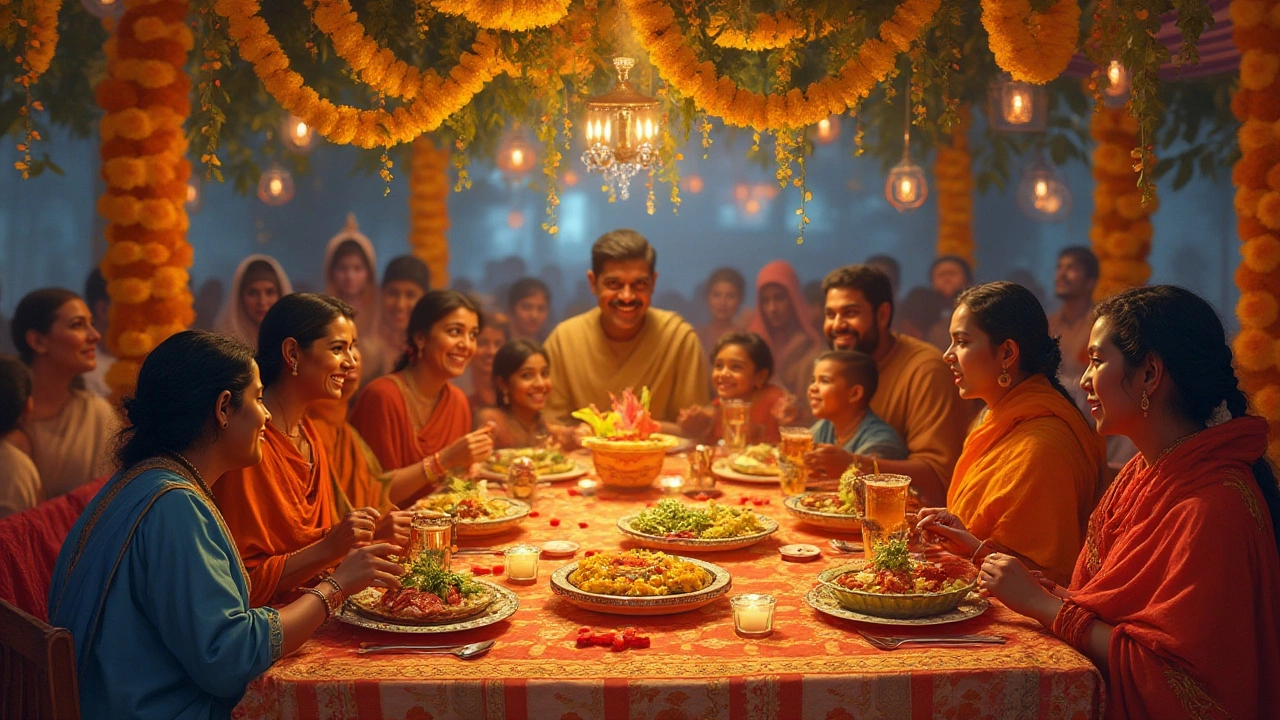Spirituality in Indian Food – How Faith Shapes What We Eat
Food isn’t just fuel in India; it’s a mirror of belief. Whether you’re a Hindu who avoids pork, a Muslim who savors festive sweets, or a vegetarian who follows a plant‑based creed, your kitchen choices tell a story about your faith.
Why Hindus Skip Pork and Choose Certain Ingredients
One of the most talked‑about food rules in Hindu families is the pork taboo. The belief comes from ancient scriptures that link the animal to impurity in many ritual contexts. Because of that, you’ll find dishes that highlight legumes, vegetables, and dairy instead. Articles like “Why Do Hindus Not Eat Pork? Indian Food Beliefs and Traditions Explained” break down the history and show how the restriction shapes everyday meals – from dal to paneer.
Muslim Sweet Traditions and Their Spiritual Roots
Muslim communities in India celebrate Eid and Ramadan with a burst of sweets. The love for desserts isn’t just about taste; it’s a way to share gratitude and hospitality. The post “Why Do Muslims Love Sweets? Exploring Traditional Islamic Dessert Culture” explains how sweets like sheer khurma or baklava become symbols of joy during religious holidays.
Beyond these two faiths, several religions in India encourage minimal meat consumption. The guide “Religions That Eat the Least Meat: Vegetarianism and Spiritual Beliefs Worldwide” lists Buddhism, Jainism, and Sikhism, and shows how their teachings translate into simple, plant‑focused meals.
Understanding these beliefs can help you respect traditions when you cook for friends or attend a celebration. For example, if you’re invited to a Hindu home during a fasting day, you might offer fruit or simple rice dishes instead of meat‑heavy plates.
These spiritual food rules also affect how dishes are prepared. Tasting notes, cooking methods, and even the choice of oil can change to meet religious guidelines. The article on “Is Tandoori Chicken Safe for Diabetics? Nutrition and Healthy Tips” highlights how a classic grilled dish can be tweaked to fit health‑focused faiths without losing flavor.
When you’re curious about the cultural side of a recipe, look for clues in the title. Posts about “Ancient Indian Sweets” or “Best Indian Curries for Weight Loss” often touch on why certain ingredients are favored in specific communities.
So, the next time you’re planning a menu, think about the spiritual backdrop. It’s not just about avoiding pork or adding more ghee; it’s about honoring a tradition that has guided kitchens for centuries.
By blending respect for faith with tasty cooking tricks, you’ll create meals that satisfy both the palate and the soul.
Exploring Vegetarianism in Indian Spiritual Practices
Certain religions, mainly originating from India, embrace a predominantly vegetarian lifestyle, deeply rooted in their spiritual teachings and practices. Hinduism, Jainism, and Buddhism are renowned for their encouragement of a vegetarian diet, which aligns with principles of non-violence and respect for all living beings. This article delves into the traditions and beliefs of these religions and how they influence dietary choices among their followers. Discover how these spiritual paths shape not only food habits but also cultural and ethical landscapes.
